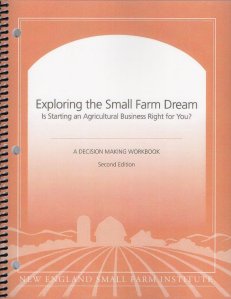What were SFF students up to over winter break 2020/2021? Despite limitations of the continued pandemic, students made time for cooking, planning gardens, and definitely sleeping. Some students engaged in some pretty cool activities directly related to their studies and interests… read more below!
Braiding Sweetgrass Book Club
Over winter break, I formed and led a virtual reading group for the book Braiding Sweetgrass by Dr. Robin Wall Kimmerer.
I kept hearing about Braiding Sweetgrass in my classes and really wanted to read it. I noticed a similar desire among some of my classmates and figured a book club would be the perfect way to get the most out of it while also staying connected over the long break. It would also be a great way to utilize the skills and knowledge that I gained from my Agricultural Leadership and Community Education class. I put the word out and received a ton of support from my fellow students, teachers, and faculty. My gratitude goes out to librarian Madeleine Charney who was able to secure 15 copies of the book to give out to our group.
In our 10 weeks together, a wonderful community emerged around the teachings of plants and the messages of love and reciprocity found in the book. One of the greatest strengths of our group was the diversity of ages between our members which allowed for an interesting range of perspectives. This experience taught me a lot about how to organize a group towards a shared goal and what it means to be a strong leader.
-Adam Finke (SFF & BDIC Double major)
Seed Saving Conference
Over winter break I attended the NOFA NY (Northeast Organic Farming Association New York) seed saving conference, which was housed within the general NOFA NY farming conference. The week included sessions such as Seed Saving 101, Seed and Plant Pathology, and Seed Activists and Not-For-Profits in the Northeast. These sessions, while informative on the actual process of seed saving, also emphasized the significance of the stories, history and culture behind seeds. Seed rematriation efforts were discussed, as were stories of growing and stewarding culturally significant crops. (Seed rematriation, put simply, refers to the return of seeds to their Indigenous seedkeepers; the removal of such seeds from Indigenous communities is but one facet of the legacy of colonialism in this country). It was impossible to leave the conference without some fundamental questions about my relationship to seeds rattling around in my brain. What seeds might my ancestors have grown? What plants do I feel pulled towards? The importance of history in the work of seed saving is almost always removed from the seed-as-industry equation. It was exciting to learn about all the people working to reclaim a regional and mindful seed system.
-Isadora Harper (SFF Senior)
Relevant links: Seedshed, Turtle Tree Seeds, Freed Seed Federation, Reclaim Seed NYC, Truelove Seeds
Exploring the Small Farm Dream Course
For my independent study, I took an MDAR (Massachusetts Department of Agricultural Resources) course titled “Exploring the Small Farm Dream: Is Starting an Agricultural Business Right for You?’”. I was mainly interested in taking this course because as a prospective future farmer, I wanted to know more about the business aspect of farming. All of the number crunching, marketing, decision-making, and paperwork for running a farm felt overwhelming and scary. Going into this course, I wanted to work to demystify this aspect of farming and to honestly look at whether or not running a farm business was right for me.
The class ran mainly over winter break, meeting Tuesdays from 6-8. The coursework was split into four different sections: Assess Yourself, Research the Landscape, Assess Your Resources, and Make A Decision & Plan Next Steps. All of these steps were vital to helping me come out of this class more prepared and ready to take on the next steps of my life in farming. Before, I just had a vague, idealistic vision of a farm that I wanted to have some day. Going through homework, the worksheets, and chatting with my peers, it quickly became apparent that that wasn’t going to cut it. I needed to figure out what I wanted if I wanted to have a shot at farming — and farming well. At the direction of the workbook, and instructor Jennifer Hashley, I was encouraged to create a timeline of steps to help obtain my dream of running a farm. Coming out of the class, I feel more focused and energized on what I want to do — and the prospect of owning a farm business feels less intimidating!
-Annemarie Walsh (SFF Senior)


